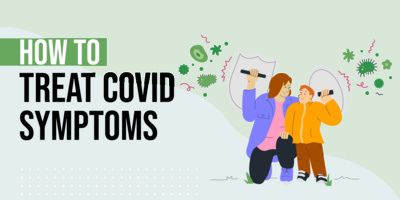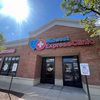
How to Treat COVID Symptoms
2024 will mark the fourth year of living in a world with COVID-19. Thankfully, more is known about this virus...
Read moreHelp patients book appointments with you on Solv. It's free!
20 instant-book locations




















Help patients book appointments with you on Solv. It's free!
Vaccines play a critical role in public health by preventing infectious diseases, reducing outbreaks, and protecting vulnerable populations like children, the elderly, and immunocompromised individuals. Vaccines have been designed for various viruses and bacteria to safeguard individuals and their communities, reducing healthcare costs and disease burdens while promoting long-term societal well-being through herd immunity.
More than 30 vaccines have been developed to protect humans from disease, each by stimulating the immune system to recognize and fight specific infections. Not all of these, however, are commonly available, particularly at urgent care centers or even through your primary care provider. Below are some of the most widely used vaccines that you could likely find in or around Thornton.
Flu shots are a seasonal vaccine that protect against influenza, a highly contagious virus that can cause serious illness and even death. The CDC recommends that everyone 6 months and older get vaccinated annually, as flu viruses change each year and immune protection wanes over time. Flu symptoms include fever, coughing, sore throat, body aches, fatigue, and, in some cases, vomiting or diarrhea. The vaccine can reduce the severity of illness, particularly in high-risk groups such as infants, the elderly, and those with chronic conditions. The flu shot is available in two forms: an injection and a nasal spray, with most people opting for the injection. While side effects may mimic mild flu-like symptoms, the vaccine cannot give you the flu.
Yes, many urgent care centers offer flu shots. You can book same-day appointments through Solv or walk in, though scheduling an appointment may reduce wait times.
Flu shots can cost between $0 and $50 depending on your insurance coverage. Most insurance plans cover the vaccine, so check with your provider for specific details.
The CDC recommends getting your flu shot in September or October, but vaccines are available as early as August. Urgent care centers typically offer extended hours, making it easy to get vaccinated after work or on weekends
The 2024-2025 COVID-19 vaccines, including Pfizer-BioNTech, Moderna, and Novavax, are recommended for everyone ages 6 months and older to protect against severe illness, hospitalization, and death. Staying up to date is crucial because vaccine protection decreases over time. The vaccines are updated to target the latest circulating strains, ensuring the best defense. Vaccination is especially important for individuals at higher risk, such as those aged 65 and older, people with underlying health conditions, pregnant individuals, and those in long-term care facilities. Common side effects are generally mild, such as soreness, fatigue, fever, and headache, but typically resolve quickly.
Everyone aged 6 months and older should receive the 2024–2025 COVID-19 vaccine to reduce the risk of severe disease and complications.
Yes, these vaccines have undergone the most extensive safety monitoring in U.S. history and meet FDA safety standards.
COVID-19 vaccine protection decreases over time, making it important to stay up to date with your vaccines for continued protection against severe illness.
A tetanus vaccine protects against tetanus, a serious bacterial infection that causes painful muscle spasms, often starting in the jaw (lockjaw). If untreated, tetanus can lead to death in 10-20% of cases. Tetanus bacteria typically enter the body through cuts or wounds, and symptoms usually appear about a week after infection. Common symptoms include muscle stiffness, difficulty swallowing, headache, fever, and spasms. Since there is no cure, tetanus vaccination is essential. The first dose, usually given in childhood, is a combination vaccine called Tdap, which also protects against diphtheria and pertussis. Booster doses are required throughout life, especially for adults. Pregnant women may also need a shot during the third trimester.
Tetanus shots are usually available at urgent care centers, retail clinics, and pharmacies.
The out-of-pocket cost for a tetanus shot typically ranges from $25 to $60, with the exact amount varying based on your location and the provider you select for the vaccination.
Children should get vaccinated between 2 months and 6 years old, with booster shots as a teenager and adult. Adults exposed to tetanus (e.g., through injuries) should seek immediate vaccination.
The chickenpox vaccine, also known as the varicella vaccine, helps prevent chickenpox, a highly contagious disease caused by the varicella-zoster virus. Chickenpox presents as an itchy, blister-like rash, typically starting on the chest, back, and face, and is often accompanied by fever and fatigue. The CDC recommends two doses of the vaccine for children, teens, and adults who have never had chickenpox or been vaccinated. The vaccine is about 90% effective, significantly reducing the risk of infection. Those especially encouraged to get vaccinated include healthcare workers, teachers, and international travelers. Two vaccine options are available: Varivax® (for chickenpox only) and ProQuad® (which also includes vaccines for measles, mumps, and rubella). Most health insurance plans cover the vaccine, and programs like Vaccines for Children (VFC) may assist those without coverage.
Yes, many urgent care centers offer chickenpox vaccines. You can book a same-day appointment online or visit a center, but scheduling in advance can reduce your wait time.
Varivax (the varicella vaccine) can range from $50 to $250 depending on your insurance and where you get the vaccine. Your health insurance may even cover it. It’s best to confirm with your provider beforehand.
Children should receive their first dose between 12-15 months and a second dose between ages 4-6. If they miss this window, two doses spaced 28 days apart are recommended for anyone over 13.
The shingles vaccine helps prevent shingles, a painful skin rash caused by the reactivation of the varicella-zoster virus, which also causes chickenpox. Shingles can lead to severe complications like long-term nerve pain. The CDC recommends two doses of the Shingrix vaccine for adults 50 years and older and those 19 and up with weakened immune systems. The vaccine is over 90% effective in preventing shingles and related complications. Common side effects include soreness at the injection site, fatigue, and muscle pain, but the vaccine cannot cause shingles. Most health insurance plans, including Medicare Part D, cover the shingles vaccine. People who have had chickenpox or shingles before are still advised to get vaccinated, as it can prevent future outbreaks or reduce their severity.
Many urgent care centers offer the shingles vaccine, as well as primary care providers and even retail clinics. You can book same-day or next-day appointments online through Solv for faster service.
Without insurance, the shingles vaccine can cost as much as $200 to $250. Check with your insurance provider for coverage details, or call your provider if you are paying cash.
The CDC recommends the shingles vaccine for adults 50 and older, and those 19+ with weakened immune systems. Even those who’ve had shingles or chickenpox should be vaccinated.
The measles vaccine, typically administered as part of the MMR (measles, mumps, rubella) vaccine, is crucial in preventing measles—a highly contagious and serious viral infection. Measles symptoms include fever, cough, runny nose, red eyes, and a characteristic rash. The disease can lead to severe complications such as pneumonia, encephalitis, and death, particularly in young children. The World Health Organization (WHO) reports that measles vaccination averted 57 million deaths between 2000 and 2022, but in 2022, there were still 136,000 measles-related deaths globally, mostly among unvaccinated children. The vaccine is highly effective, with one dose providing 93% protection and two doses boosting protection to 97%. Routine vaccination, typically administered at 12-15 months with a booster at 4-6 years, remains essential to controlling and eliminating measles worldwide.
Measles vaccines are usually available at urgent care centers, retail clinics, primary care offices, and pharmacies. Booking online reduces wait times.
Without insurance, a measles vaccine typically costs between $50 and $150, depending on the clinic. Check for insurance coverage before your appointment.
Children should receive the measles vaccine as part of the MMR schedule at 12-15 months and again at 4-6 years. Unvaccinated adults, healthcare workers, and international travelers should also ensure they are vaccinated.
The hepatitis vaccine protects against infections caused by hepatitis A and B viruses, which can lead to severe liver damage and even death. Hepatitis A spreads through close person-to-person contact, while hepatitis B spreads through bodily fluids, such as blood, saliva, and semen. The CDC recommends the combination vaccine for adults over 18 who are at risk due to their profession, lifestyle, or travel to high-risk areas like Southeast Asia, Africa, and Central and South America. High-risk groups include healthcare workers, drug users, those involved in high-risk sexual activities, and individuals with chronic liver conditions. Two doses are needed for the hepatitis A vaccine and three doses for the hepatitis B vaccine. Most health insurance plans cover these vaccines.
Yes, most urgent care centers near Thornton offer hepatitis vaccines. You can book same-day appointments or walk in, but scheduling online may reduce wait times.
Without insurance, the hepatitis vaccine can cost between $50 and $150 for adults. Many insurance plans cover the cost, so check with your provider.
The vaccine is recommended for people at higher risk, including healthcare workers, travelers to high-risk areas, drug users, and those with chronic liver conditions.
The yellow fever vaccine is crucial for protecting against yellow fever, a viral infection transmitted by infected mosquitoes. Yellow fever is prevalent in regions like South America and sub-Saharan Africa. The virus can cause severe illness, with symptoms ranging from fever and muscle pain to liver and kidney failure in severe cases. The vaccine is recommended for individuals aged nine months to 59 years who are traveling to or living in areas where yellow fever is common. Some countries require proof of vaccination for entry. The vaccine offers lifelong protection, and travelers are advised to get vaccinated at least 10 days before departure. Additional preventive measures include using EPA-approved insect repellents, wearing long-sleeved clothing, and staying indoors where there are screens or air conditioning.
Yes, many urgent care centers offer yellow fever vaccines. You can also check with your primary care provider, pharmacies, or local travel clinics.
Without insurance, the vaccine can cost between $150 and $350. Some insurance plans may cover part of the cost if it includes preventive care benefits.
Anyone over 9 months old who plans to travel to or live in yellow fever-prone regions, such as parts of South America or Africa, should receive the vaccine at least 10 days before travel.
The typhoid vaccine protects against typhoid fever, a life-threatening infection caused by Salmonella Typhi, often contracted through contaminated food or water. Typhoid fever is common in regions with poor sanitation, such as parts of Asia, Africa, the Caribbean, and Central and South America. Symptoms include high fever, weakness, stomach pain, and headache. The CDC recommends two types of vaccines: an inactivated injectable vaccine for people over 2 years old and a live oral vaccine for those over 6 years old. Travelers to endemic regions, people in close contact with a carrier, and lab workers handling Salmonella Typhi are advised to get vaccinated. The injectable vaccine requires a booster every two years, while the oral vaccine requires a booster every five years. The vaccine reduces, but does not eliminate, the risk of typhoid infection, so maintaining food and water safety measures is essential.
Typhoid vaccines are sometimes available at urgent care centers, travel clinics, and pharmacies. Call your provider before your visit to confirm availability.
Without insurance, a typhoid vaccine generally ranges from $125 to $200, depending on the type of vaccine. Check with your provider for specific coverage.
Travelers to endemic regions, close contacts of typhoid carriers, and lab workers handling Salmonella Typhi should get vaccinated. Both oral and injectable options are available.

Updated on Oct 25, 2024
Chickenpox Vaccine in Thornton
DOT Exam in Thornton
Ear Wax Removal in Thornton
Flu Shot in Thornton
Hepatitis Vaccine in Thornton
Measles Vaccine (MMR) in Thornton
Physical Exam in Thornton
Shingles Vaccine in Thornton
Sports Physicals in Thornton
Tetanus Shot in Thornton
Typhoid Vaccine in Thornton
Yellow Fever Vaccine in Thornton
A1C Test in Thornton
Basic Metabolic Panel in Thornton
Blood Test in Thornton
CMP Test in Thornton
COVID-19 Antibody Test in Thornton
Cholesterol Test in Thornton
DNA Test in Thornton
Diabetes Test in Thornton
Diagnostic Test in Thornton
Drug Test in Thornton
Flu Test in Thornton
Lab Tests in Thornton
Mono Test in Thornton
Pregnancy Test in Thornton
RSV Test in Thornton
STD Testing in Thornton
Strep Test in Thornton
TB Test in Thornton
Tips, advice, news—your resource to stay healthy and safe while improving your experience with healthcare providers when you need them.